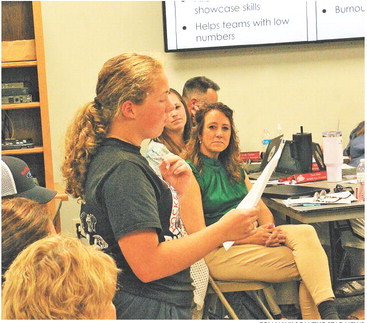The $700 million man will change everything


After months of waiting, speculation and one article by a very upset Buster Olney, Shohei Ohtani finally signed a deal. The best player in the baseball world is going to be paid like it, as he signed an unprecedented $700 million contract with the Los Angeles Dodgers, the largest single contract for an athlete (though it is over 10 years, which still makes several soccer players higher paid on an annual basis). The number is astronomical even in a Major League Baseball lens. Initial projections were estimating somewhere in the range of $500 million to maybe $650 million at the maximum, and those maximum projections were made before Ohtani’s most recent injury that will not allow him to pitch next season.
It is a truly insane deal; Ohtani will be getting paid more than the entire Oakland Athletics roster last season. Four teams all fielded rosters only a few million more than what the Dodgers gave Ohtani. It blows Mike Trout’s 12year, $426.5 million contract out of the water.
And on one hand, perhaps rightfully so. Ohtani has, after all, been doing things that no one in baseball has done for nearly a hundred years. And even when they were doing it then, it was not done with the same level that Ohtani has displayed the last few years. In a league where players are typically driven down a path to master either pitching or hitting, Ohtani has done both. And not just at an average MLB level, but being in the conversation for the Cy Young while hitting an ALleading 44 home runs and posting a league high 1.066 OPS is something that was near unimaginable.
But on the other hand, the contract also points out one of the inherent problems with the league. Remember earlier when I mentioned that Ohtani’s annual $70 million salary was more than an entire team’s roster and very close to the same as several others? Yeah, those teams were never in the conversation to sign the generational talent Ohtani. Nor were three-fourths of the league, and even more dropped out when their current spending was considered. Only a handful of teams could even hope to pay Ohtani remotely what the Dodgers gave him.
I’ve talked before about how a lack of a salary cap may hurt the competitive balance of the league, so I won’t go into it too much here. But there is an extra wrinkle in this Ohtani contract that makes things even more interesting.
You see, the Dodgers won’t be paying Ohtani $70 million a year over 10 years. Ohtani will actually only be getting $2 million per year over the life of his 10 year contract from the Dodgers, as a whopping 97 percent of the contract’s value will be deferred to be paid out over the 10 years after the contract is completed. While, due to how deferred payments work, it still averages out to the Dodgers paying something around $46 million a year for Ohtani’s services, it is still a ridiculous discount that the two time MVP has taken.
And he was the one that suggested it. He wanted to give the Dodgers additional flexibility to go out and spend that money on other players, to build an even better roster around him than the numerous other superstars the Dodgers already employ. It is a crazy move and one that only a few teams could make.
Recently, the Brewers made a similar bet (though for far fewer dollars) on young outfielder Jackson Chourio. Without a single Major League at-bat under his belt, Chourio signed an eight-year, $82 million deal. Unprecedented in its own right, but of a different sort. But it is these sorts of deals that small market teams like the Brewers need to make to hope to stay competitive. And while there is certainly risk when signing any player to a long term contract, there is a difference between doing it for a well established talent like Shohei Ohtani and a teenager who has not dug in against major league pitching yet. And the thing is, the Dodgers could afford to do both, if they really wanted to.
It just feels odd that, while the teams play the same game on the field, they certainly aren’t doing so off of it. The Dodgers and Yankees and Cubs get to play with rooks and queens while the Brewers and Rays and Pirates are left to make due with pawns and maybe an old bishop nobody wants anymore. But there doesn’t seem to be any want from anyone in the league to make a move to change that any time soon, so this point is probably moot anyhow.
Anyhow, it will be interesting to see how this contract will ripple throughout the league and if similar deferrals will be made in the future by players. Once again, Ohtani has changed the game of baseball, and we will have to just wait and see what happens next.
A C ertain Point of V iew




